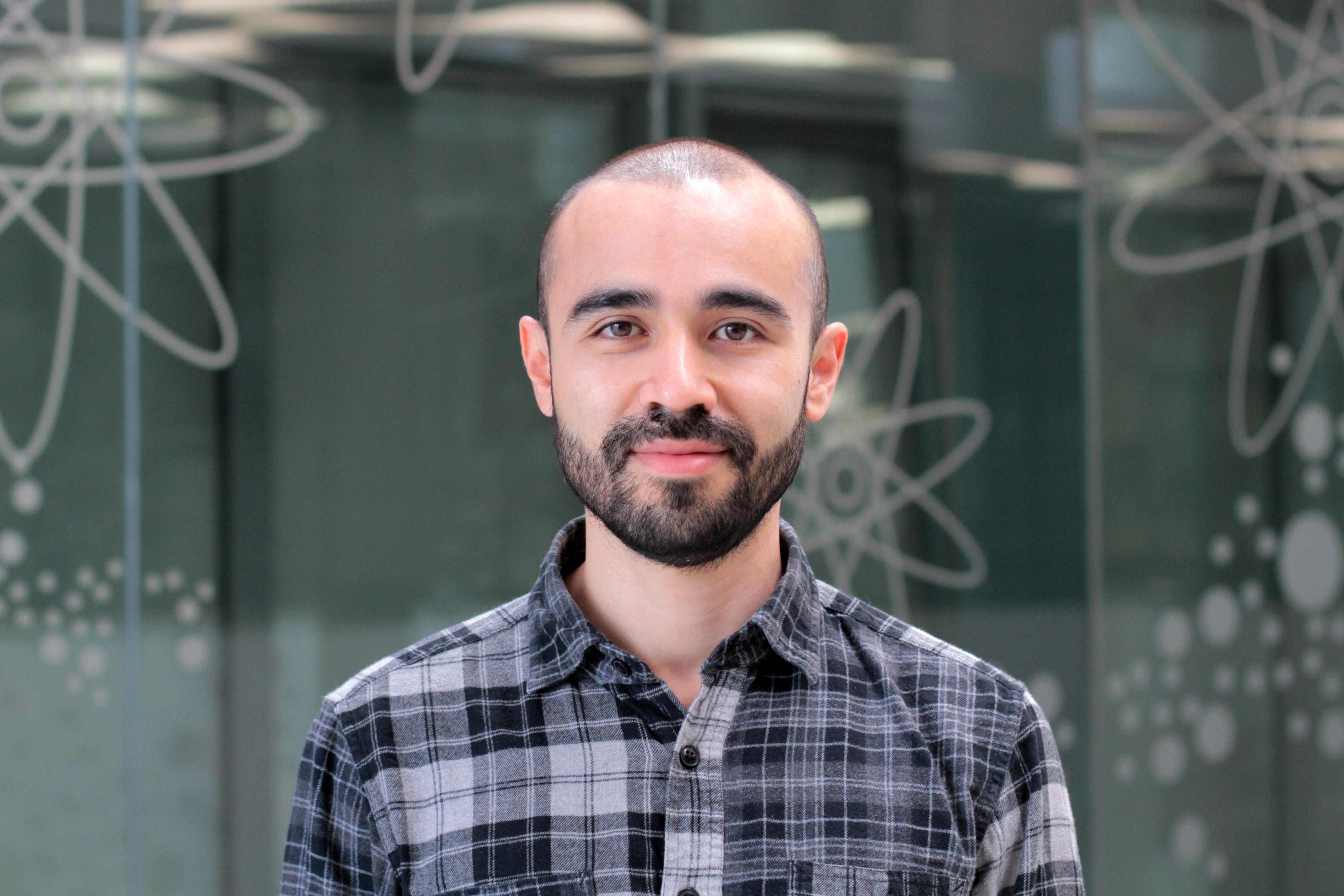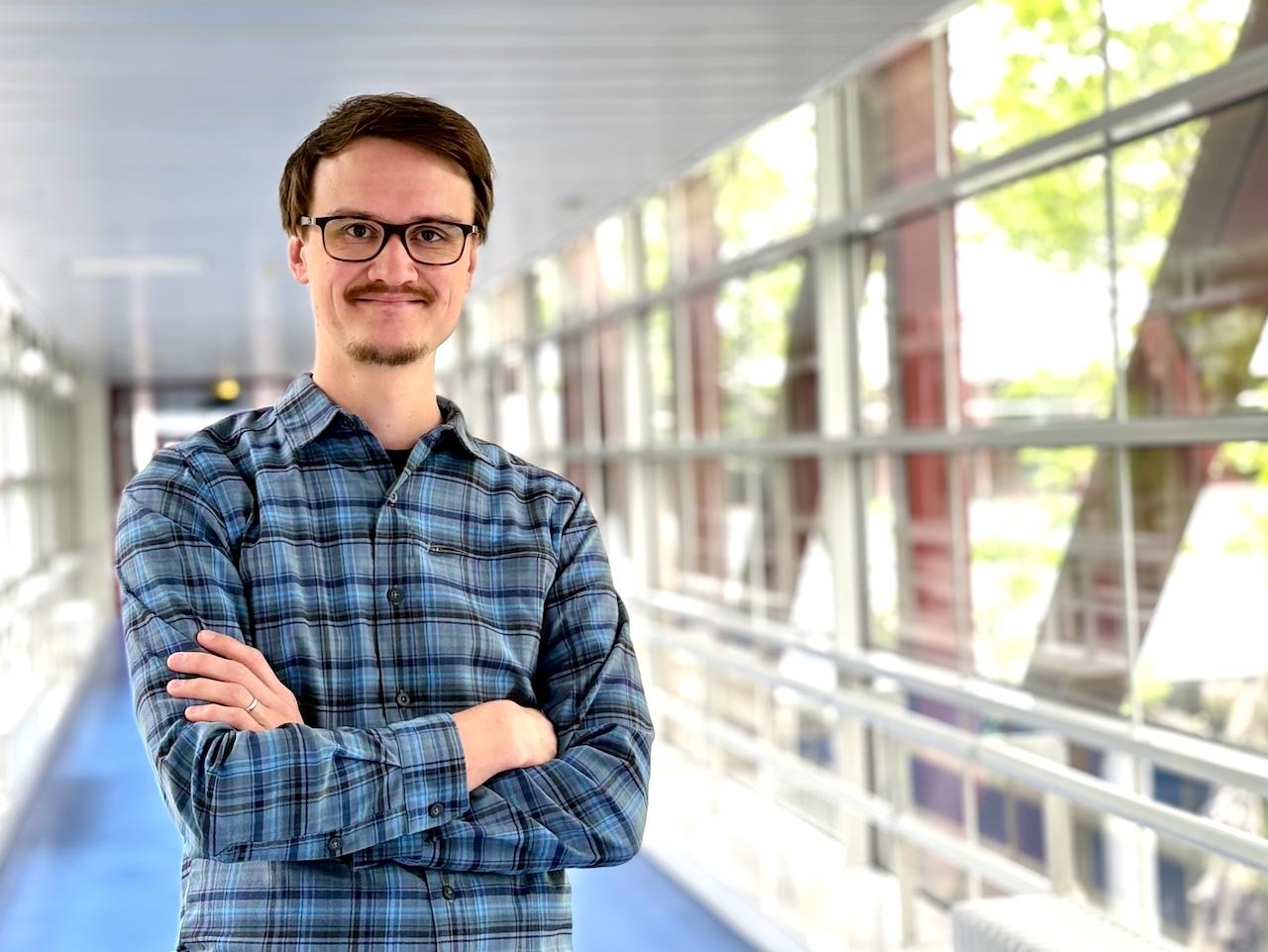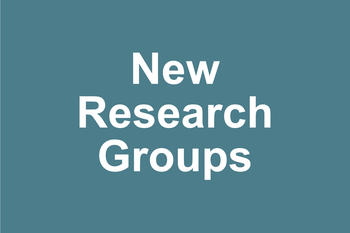Ordóñez Group and Müller Group – New Research Groups at the Department of Physics
Two new Emmy Noether junior research groups have started their work at the Department of Physics. We warmly welcome the scientists and wish them great success in their research!
News from Jun 10, 2025
Research Group Ordóñez: Chiral Light–Matter Interactions
Dr. Andrés Ordóñez has had a dynamic scientific career. After studying physics in Colombia and Spain, he completed his doctorate at the Technical University Berlin and conducted research at the Max Born Institute. He was twice a Marie Skłodowska-Curie Fellow. In 2023, Dr. Ordóñez moved to London, where he conducted research at Imperial College London and Queen Mary University of London.

In 2025, Dr. Ordóñez returned to Berlin to establish his own research group at Freie Universität Berlin. His group is funded by the DFG’s Emmy Noether Programme through the project Coherent Highly Enantioselective Molecular Manipulation enabled by Multiphoton Interactions with Structured Light (CHEM3ISt-Light).
The Ordóñez’ group focuses on the theory of nonlinear chiral light-matter interactions. They study how to control the quantum dynamics of chiral molecules by structuring electromagnetic fields in time and space and leveraging state-of-the-art light sources, from femtosecond lasers to X-ray free-electron lasers.
The research group collaborates closely with several experimental groups around the world.
Research Group Müller: Interdisciplinary Nanophotonics
Dr. Niclas Sven Müller started establishing his Emmy Noether research group in May 2025, returning to Freie Universität Berlin after several postdoctoral positions. He studied physics at Freie Universität Berlin and earned his PhD in the group of Prof. Dr. Stephanie Reich. From 2021 to 2023, he conducted research at the Nanophotonics Centre of the University of Cambridge, supported by a Leopoldina fellowship. Over the past two years, he worked at the Fritz Haber Insititute of the Max Planck Society in Berlin.

The research of the Müller group lies in the field of experimental nanophotonics, bridging phenomena from the typically separate spectral ranges of visible and mid-infrared light. The group is funded by the Emmy Noether Programme with €2.1 million for the project ‘Luminescence Upconversion Nanoscopy – LUNA’.
In the new laboratory currently being set up, nonlinear optical microscopy will be used to investigate structure-property relationships in quantum materials with nanometer precision. The aim is to gain a deeper understanding of interfaces in two-dimensional materials and explore new coupling channels for energy conversion at the nanoscale. The group closely collaborates with research groups at the department, at the neighboring Fritz Haber Institute, and with international partners.
The Mueller group has open positions and is looking forward to welcome new group members.
About the Emmy Noether Programme
The Emmy Noether Programme of the German Research Foundation (DFG) supports outstanding early-career researchers on their path to a professorship. It enables independent research and the opportunity to lead a junior research group at an internationally competitive level.
Keywords
- Andrés Ordóñez
- Chiral Light–Matter Interactions
- Emmy Noether group
- Interdisciplinary Nanophotonics
- Niclas Sven Müller
- research
- science
